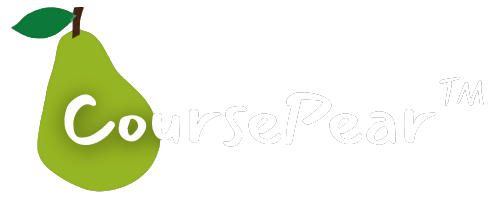🍐 我们总结了Essay代写中——美国代写的经典案例,如果你有任何哲学代写的需要,可以随时联络我们。CoursePear™ From @2009。
History of Ethical Philosophy Fall 2022
Team U, Dr. Vail
Ethics Paper One: A Philosophical Dialogue
Length: 5 pages minimum. (No maximum page limit.)
Due Date: (Fri. 28 OCTOBER, hard copy, due at beginning of class)
Directions: Create an imaginary conversation among the six ancient philosophers listed below about one of three types of moral dilemma.
Write this conversation in the form of a dialogue (the way Plato’s dialogues are written).
Include all of the following philosophers:
Socrates
Epicurus (Epicurean)
Pyrrho (Skeptic)
Diogenes (Cynic)
Aristotle
Epictetus (Stoic)
Sources: You may of course use our course texts as sources. You may also use good outside sources (i.e. books or articles not assigned as class readings) as long as they are properly used and documented. No outside sources are required for this paper. Any outside sources you use should be cited correctly within the text of the paper and should be correctly listed on your Works Cited page. None of our assigned texts have to be included on a Works Cited page, but when you quote or paraphrase from one, put the page number(s) in parentheses after the material used. Like this:
SOCRATES: As I once told Crito, “We ought not to retaliate or render evil for evil to anyone,
whatever evil we may have suffered from him” (p. 53).
If there is no page number in your text, just put the title of the work in parentheses instead. Example:
SOCRATES: As I once told Crito, “We ought not to retaliate or render evil for evil to anyone,
whatever evil we may have suffered from him” (Crito).
Grading: You will be primarily graded on how well you convey your understanding of each philosophical position, how logical and thoughtful your paper is, and how thoroughly you consider the various aspects of the moral situation you’ve chosen. Your spelling, grammar and punctuation must be accurate.
Style: Since it’s a dialogue, your paper will not have a typical essay structure—i.e., no
formal introduction or conclusion, no thesis statement. Remember—dialogue means a real discussion—not just each person stating his position and that’s it. Be creative and have some fun with it—humor is encouraged. But make sure that the paper is very substantive and informative as well as entertaining. The philosophers do not have to speak exactly like ancient people – they may speak in plain English with a modern vocabulary.
You may write one or two creative introductory paragraphs describing how and why the philosophers are talking to each other in the first place. You can say, for instance, that the conversation happened in a dream you had while falling asleep over your reading assignments. Or that it happened in a virtual reality simulation, or that the philosophers were sitting around in the afterlife observing things that happen down on earth, or any other way you’d like to do it. Just remember, though, that I am grading you primarily on the quality of the actual dialogue between the philosophers.
Spacing: Single-space WITHIN a chunk of dialogue; double-space BETWEEN chunks of dialogue. Like this:
ARISTOTLE: My belief is that in ethics, as in everything else, human beings should follow the principle of the Golden Mean.
PYRRHO: Does that have something to do with the inscription on the Temple of Apollo, “Nothing in Excess”?
ARISTOTLE: The idea is similar.
Your Three Options:
- Invent a scenario involving a team sporting event, game or other sort of competition. After your team wins, your teammate privately confesses to you that they cheated; if they hadn’t cheated, it is likely your team would have lost. What do you do about it (if anything) and why? Create a dialogue in which the philosophers discuss what is the morally right thing to do in this situation and why. Include yourself as a member the discussion, either throughout or just at the end.
- Invent a scenario involving lying to or otherwise deceiving a friend, loved one or family member. This person trusts you completely and would feel a deep sense of betrayal if you lied to them and they found out. However, you believe that lying to or deceiving them in this particular instance would benefit yourself and/or them in some way, and that there’s a good chance that the they will never find out that you lied to / deceived them. Create a dialogue in which the philosophers discuss what is the morally right thing to do in this situation and why. Include yourself as a member the discussion, either throughout or just at the end.
- Invent a scenario involving stealing, for your own benefit, for the benefit of someone else, or for both. (The theft should be significant enough so that the philosophers have a serious moral dilemma to deal with in their dialogue.) You can say that there is no way that the theft could be discovered, or that there is a chance (however great or small) that it will be discovered. Create a dialogue in which the philosophers discuss what is the morally right thing to do in this situation and why. Include yourself as a member the discussion, either throughout or just at the end.
CoursePear™是一家服务全球留学生的专业代写。
—-我们专注提供高质靠谱的美国、加拿大、英国、澳洲、新西兰代写服务。
—-我们专注提供Essay、统计、金融、CS、经济、数学等覆盖100+专业的作业代写服务。

CoursePear™提供各类学术服务,Essay代写,Assignment代写,Exam / Quiz助攻,Dissertation / Thesis代写,Problem Set代做等。
